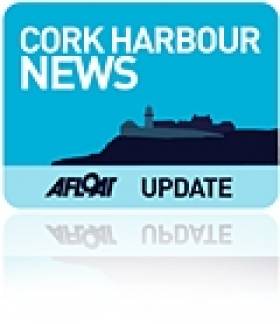Displaying items by tag: Data
UK’s Natural History Museum Releases Decades Of 20th Century Whale & Dolphin Stranding Records
#MarineWildlife - The UK’s Natural History Museum has made available for the first time a vast trove of whale and dolphin stranding records in British and Irish waters.
The data covers the years 1913 to 1989, filling in a significant gap before the Irish Whale and Dolphin Group’s stranding scheme began in 1991.
Over the years many entries were submitted by the coastguard, fishermen and members of the public — including a detailed record of a harbour porpoise found in Co Cork in 1913, the very first card in the data set.
PhD candidate Ellen Coombs is combing through the records to determine what picture “one of the longest systematic cetacean stranding data sets in the world” reveals for the status of cetacean species in our waters.
And already there have been some important finds, such as occasional records of deep-diving Cuvier’s beaked whales over the decades — not to mention a double stranding of narwhals in 1949.
The data also correlates with already known trends, such as the sharp decline in blue whale records with the expansion of commercial whaling in the early 20th century.
The Natural History Museum website has more on the story HERE.
#Subsea - The Irish Times has more details on the new transatlantic subsea internet cable Hibernia Express, work on which got underway this past March.
Clearance and pre-laying work continued this month in the Celtic Sea to prepare for the arrival of the 4,600km fibre optic cable in Cork Harbour in the coming weeks.
Once connected to the new Cork Internet Exchange (CIX), it will be the first modern telecommunications cable of its kind to link North America and Europe in well over a decade.
And its speed and capacity – offering the lowest latency between New York and London – will be a boon for businesses that depend on the fastest possible and most robust data connections.
Combined with the shorter Ireland-France Subsea Cable, it's also set to make Cork a leading global internet switching centre, eliminating the need for Ireland's internet traffic to go through the UK before the rest of the world, as TechCentral reports.
































































